A healthy diet is essential for pregnant women since it promotes the health of the developing fetus as well as the mother. Including a range of fruits in your diet on a regular basis can provide important vitamins, minerals, and antioxidants, among other health benefits. Here are six fruits that are especially healthy to eat when pregnant, along with thorough descriptions of their advantages and suggestions for incorporating them into a diet that is balanced.
Avocados
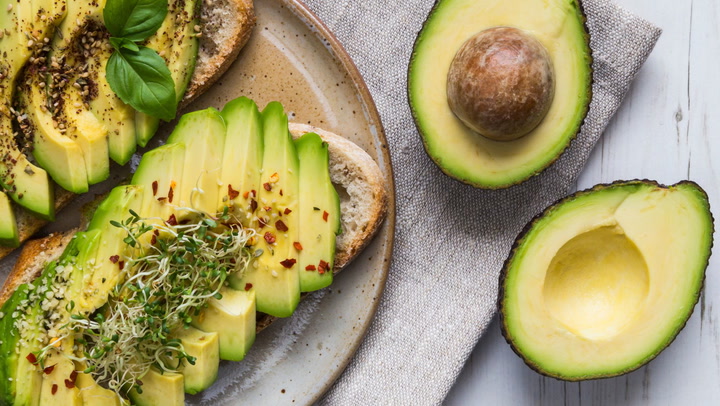
Avocados are rich in nutrients, and with a creamy texture, they are a distinctive fruit. They include an abundance of good fats, especially monounsaturated fats, which are essential for the growth of the baby’s tissues and brain. These fats are good for the mother’s heart health and aid in the development of the baby’s central nervous system.
Folate, or vitamin B9, is one of avocados’ most notable nutrients. In the early stages of pregnancy, folate is necessary for the fetus’s appropriate neural tube formation. Consuming enough folate aids in the prevention of neural tube abnormalities like spina bifida. One avocado can supply almost 20% of the 600 mcg of folate per day that are required for pregnant women.
A fantastic source of potassium, avocados also include healthful fats and folate. Potassium relieves leg cramps, a typical pregnant symptom, and aids in electrolyte balance maintenance. Increased pressure on blood vessels and nerves in the legs is frequently the cause of leg cramps; potassium helps by preserving normal muscular function and preventing cramps.
Other essential elements found in avocados include vitamin K, vitamin E, vitamin C, and B vitamins, all of which help general health during pregnancy. Avocados are a versatile food that may be enjoyed in a variety of ways, including guacamole, toast, salads, and smoothies.
Peeled bananas
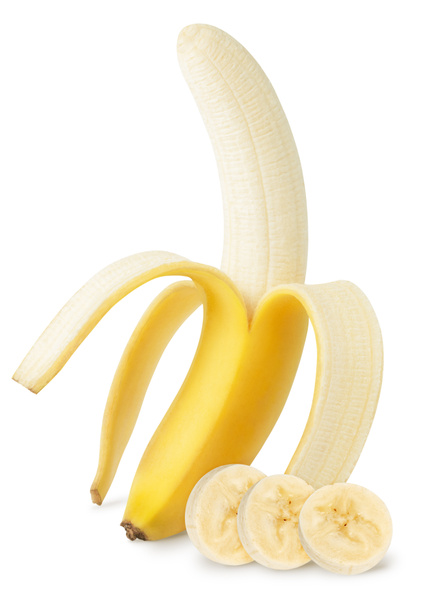
With good reason, bananas are among the most widely consumed fruits in the world. They are a great source of dietary fiber, potassium, vitamin B6, and vitamin C, among other important nutrients. These nutrients are crucial for maintaining a healthy pregnancy.
Pyridoxine, or vitamin B6, is especially helpful for pregnant women because it helps reduce morning sickness. Especially in the first trimester, nausea and vomiting are common pregnancy symptoms for many women. Bananas are an excellent addition to the diet because vitamin B6 has been demonstrated to lessen the severity of these symptoms.
Another important nutrient that can be found in bananas is potassium. It supports the maintenance of appropriate blood pressure, which is essential during pregnancy. Making sure you’re getting enough potassium in your diet will help ensure a safer pregnancy because high blood pressure can cause issues like preeclampsia. Bananas’ high fiber content also promotes regular bowel movements, which helps ward off constipation, a frequent pregnancy ailment brought on by hormonal fluctuations and the uterus’s increased pressure on the intestines.
Bananas are easy to include in your diet because they are a portable and convenient snack. They are delicious on their own, sliced into yogurt or cereal, blended into smoothies, or added to baked goods.
Berries
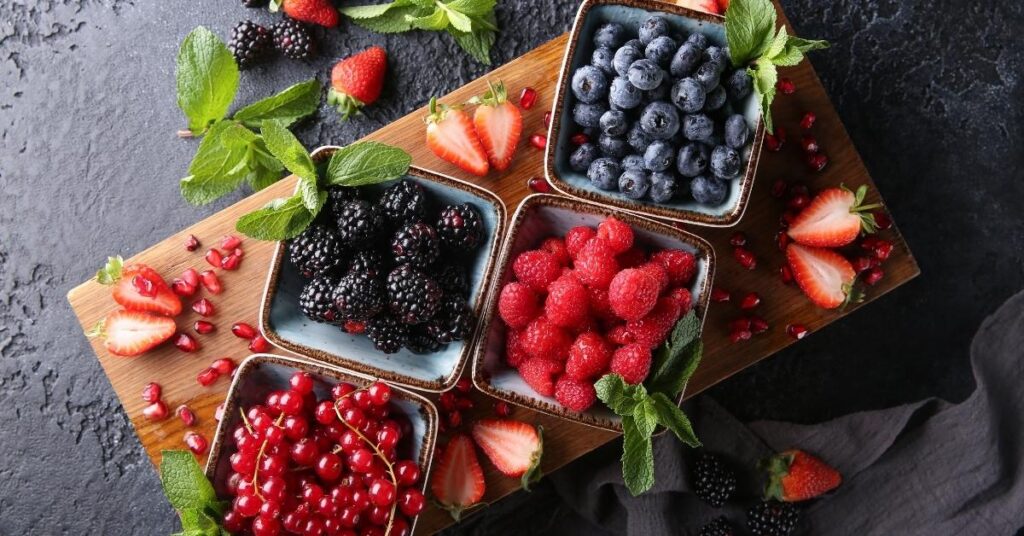
Strawberries, blueberries, raspberries, and blackberries are just a few of the berries that are nutrient-dense superfoods that are loaded with antioxidants, fiber, vitamins, and folate. These little, colorful fruits have many health benefits, but they are especially helpful when pregnant.
One of the most plentiful minerals in berries is vitamin C. It is essential for tissue growth and repair, immune system support, and improved iron absorption from plant-based diets. Pregnancy requires iron to prevent anemia, which can cause fatigue and other problems. Iron absorption can be enhanced by eating foods high in vitamin C, such as berries, in addition to meals high in iron, which will benefit general health.
Berries contain antioxidants like flavonoids and anthocyanins that help shield cells from damage brought on by free radicals. This cellular defense is crucial during pregnancy because oxidative stress can have detrimental effects on the growing fetus as well as the mother.
Additionally, rich in dietary fiber, berries facilitate digestion and ward against constipation. Berries are a low-calorie snack or meal supplement because of their inherent sweetness. Berries can be eaten raw, frozen, or dried. They can also be added to salads, yogurt, oatmeal, and smoothies.
Citrus Fruits
Though its high vitamin C content is generally recognized, oranges also provide vital nutrients and water, all of which are advantageous during pregnancy. An orange’s juicy segments offer a plethora of health benefits, along with a taste explosion.
The development of the baby’s skin, bones, and connective tissues depends on vitamin C. Additionally, it strengthens the mother’s defenses against common infections. Moreover, vitamin C is essential for pregnant women because it facilitates the absorption of iron.
Additionally, oranges are a strong source of folate, which is necessary to prevent neural tube problems in developing babies, as was previously discussed. Oranges include vitamins as well as dietary fiber, which promotes healthy digestion and wards against constipation.
Orange consumption also has the important advantage of hydration. Staying well-hydrated is essential for pregnant women in order to sustain elevated levels of amniotic fluid and blood volume. Oranges help keep you hydrated generally and provide you energy throughout the day because of their high water content.
Oranges can be consumed in a variety of ways, such as fresh slices, in fruit salads, or as freshly squeezed juice. Just watch out for overindulging in juice—it can be heavy in natural sugars and result in an excessive intake of calories.
Fruits
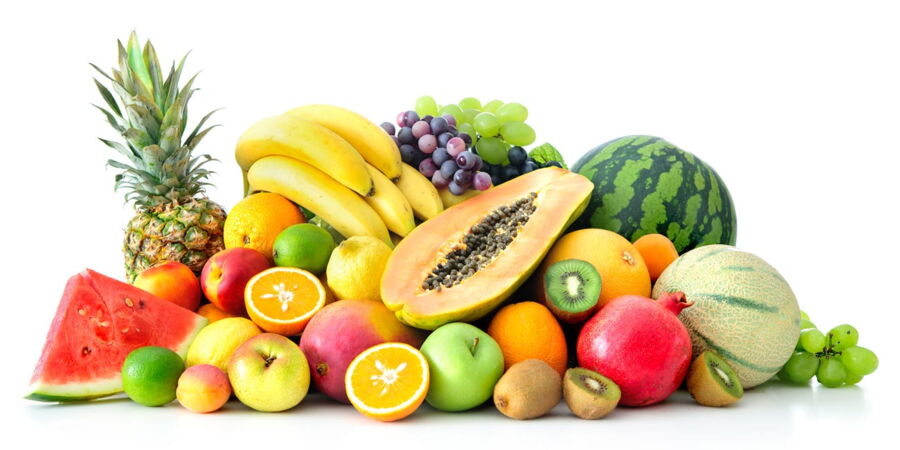
Apples are a fruit that is both readily available and versatile, and they have several health benefits. Because they are rich in vitamins, antioxidants, and dietary fiber, they are a great option for expectant mothers.
Apples’ high fiber content is one of their main advantages. Dietary fiber is necessary to keep the digestive system functioning normally and avoid constipation, which is a typical problem during pregnancy. In addition to assisting with blood sugar regulation, apple fiber can increase feelings of fullness and help curb overeating.
Apples are a great source of antioxidants, including flavonoids and quercetin, which strengthen the immune system and shield cells from oxidative damage. The developing child and the mother both benefit from this antioxidant defense.
Apples are a good source of antioxidants, fiber, and vitamins A and C. The development of the baby’s eyes, skin, and immune system depends on vitamin A, whereas vitamin C promotes tissue repair and improves the absorption of iron.
Consuming apples while pregnant can also lower the chance of preeclampsia, a disorder marked by elevated blood pressure and harm to other organs. Apples include antioxidants and polyphenols that support cardiovascular health in general, which is important during pregnancy.
Apples can be eaten raw, in fruit salads, cooked into pastries, or reduced to a sauce. Simply be sure to give them a thorough wash to get rid of any pesticide residue.
Mangos
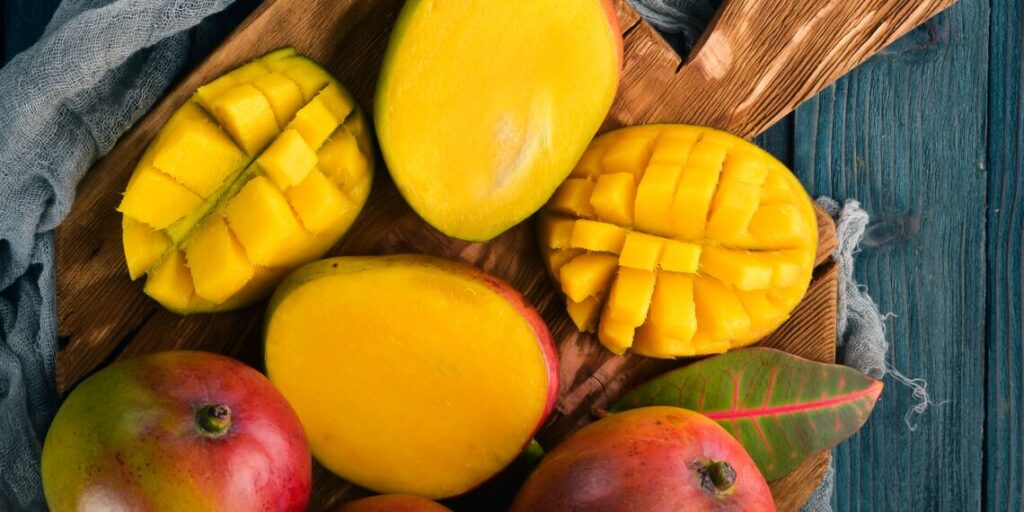
Mangoes are a delicious tropical fruit that is high in nutrients and deliciousness. They include a lot of vitamins A and C in particular, which are vital for a happy pregnancy.
Mangoes include vitamin A, which helps the developing baby’s heart, kidneys, lungs, and bones. It also contributes to the mother’s and the child’s continued good skin and vision. While consuming enough vitamin A is essential, it’s also critical to stay away from excessive dosages, as high concentrations can be hazardous.
Mangoes also include important nutrients like vitamin C. It promotes the production of collagen, which is necessary for the growth of the baby’s tendons, bones, and skin. In addition, vitamin C strengthens the immune system and facilitates better iron absorption in the body.
Mangoes’ inherent sweetness can make them a delightful treat for expectant mothers, especially if they are having cravings for sweets. Additionally high in dietary fiber, mangoes facilitate digestion and ward against constipation.
Mangoes can be eaten raw, in smoothies, in fruit salads, or as a topping for oatmeal or yogurt. As with other fruits, make sure to give them a good wash before eating.
In summary
Including these six fruits in your diet can help you have a happier and healthier pregnancy. From supplying vital vitamins and minerals to promoting digestive health and lessening pregnancy-related discomforts, every fruit has special advantages. To protect yourself from pesticides and other toxins, you must wash them well and eat them in moderation. During this critical period, always check with your healthcare professional to be sure your diet is meeting all of your nutritional needs. You may promote both your health and the health of your developing child by making educated food decisions.